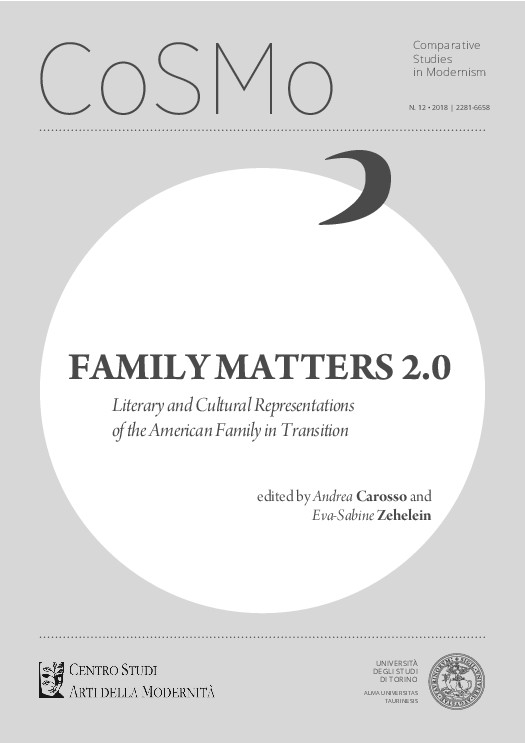“Radiant Darkness Leaked out Through Her Crack”: Cracked Families and Leaking Trauma in Michael Chabon's “Moonglow”
DOI:
https://doi.org/10.13135/2281-6658/2644Parole chiave:
21st century fiction, Jewish-American literature, Holocaust literature, postmemoryAbstract
This paper looks at the way in which Holocaust narratives explore the entity of the family as space of memory repository and, more specifically, as time-space of trans-generational transmission of traumatic memories. It focuses on Michael Chabon’s novel Moonglow as main case study and, to some extent, Art Spiegelman’s MAUS as illustrative and visual model of these mechanisms. This analysis will dwell on families of Holocaust survivors as epitome of families having to deal and come to grips with a traumatic past; a bulky heritage that permeates the everyday life of all the members, not only of those who directly experienced the tragic event. How do traumatized individuals – often suffering from PTSD, “post-traumatic stress disorder,” provoked by their involvement (in several and differing forms) in the Holocaust – relate to their kin and, especially, to their offspring? In this context, to what extent are family dynamics affected, twisted, and eventually turned dysfunctional? In what terms is the present (as well as the future) of a household shaped by, negotiated in the light of its past? These subjects will be investigated against the background of the category of “postmemory” elaborated in the 1990s by Marianne Hirsch and systematized in her seminal The Generation of Postmemory, Writing and Visual Culture After the Holocaust (2012).Downloads
I dati di download non sono ancora disponibili.
##submission.downloads##
Pubblicato
2018-06-25
Fascicolo
Sezione
Focus
Licenza
Gli autori mantengono i diritti sulla loro opera e cedono alla rivista il diritto di prima pubblicazione dell'opera, contemporaneamente licenziata sotto una Licenza Creative Commons - Attribuzione che permette ad altri di condividere l'opera indicando la paternità intellettuale e la prima pubblicazione su questa rivista.







